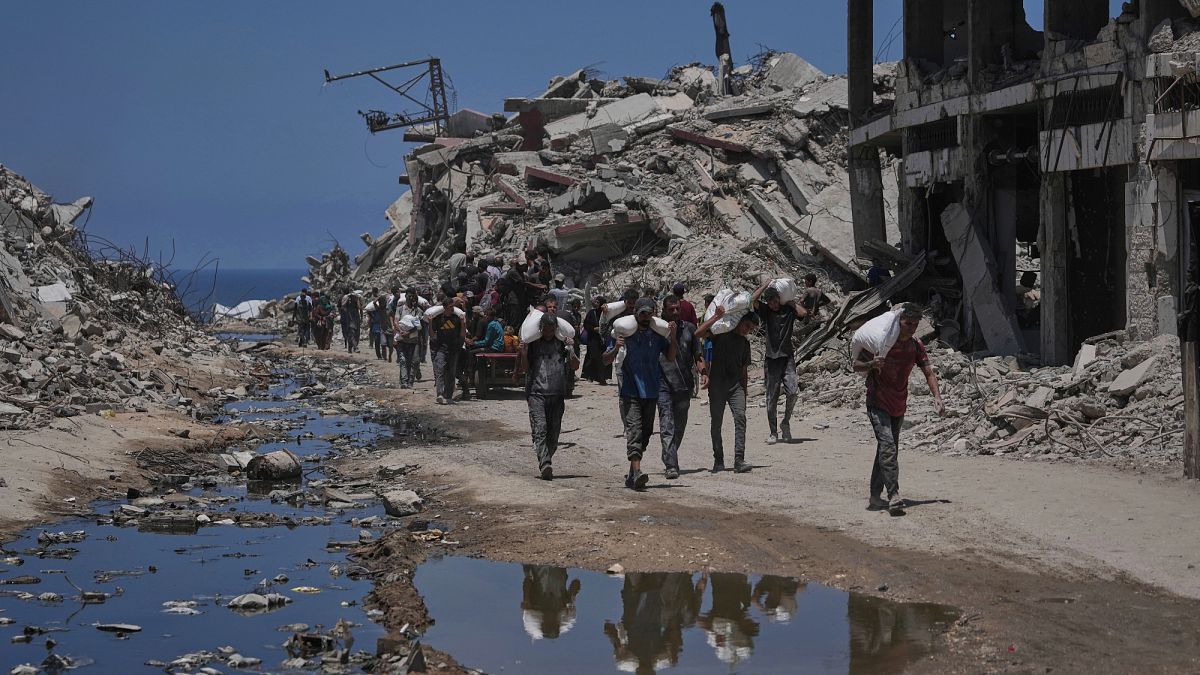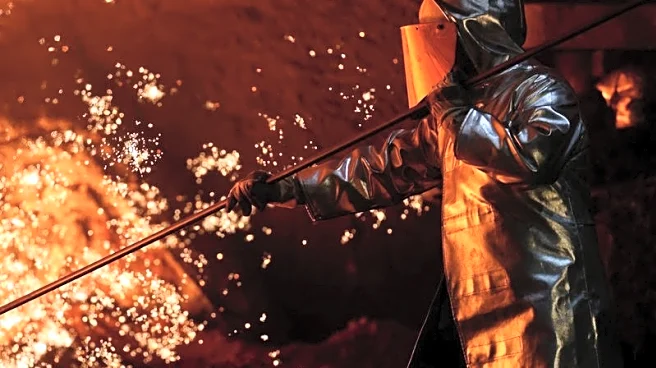Pope Leo XIV has raised his voice in a fervent call for an immediate ceasefire in Gaza, condemning the ongoing violence that has left communities devastated and displaced. In his recent addresses, the Pope labeled
Did You Know
In Bhutan, they measure their country's success by Gross National Happiness, not GDP.
?
AD
the war as a "barbarity," expressing profound sorrow for the humanitarian crisis that countless civilians are enduring. The urgency of his message has been amplified by a tragic Israeli strike on the Holy Family Church, which resulted in casualties and highlighted the brutal realities faced by those caught in the conflict.
During his Sunday blessings, the Pope implored the international community to respect humanitarian laws and to take action that prioritizes the protection of civilians. He emphasized the need for a peaceful resolution, suggesting that lasting peace can only be achieved through collective efforts to address the violence that has engulfed the region. His heartfelt appeals resonate with deep compassion, reflecting a moral imperative to alleviate the suffering experienced by the most vulnerable populations in Gaza.
Compounding this humanitarian crisis, reports have emerged regarding the plight of journalists working in Gaza, particularly those associated with Agence France-Presse. Many of these freelance contributors are facing dire circumstances, with reports indicating that some may be at risk of dying from starvation. As the situation unfolds, the Pope’s calls for compassion and immediate intervention serve not only as a beacon of hope but also as a sobering reminder of the urgent need for sustained humanitarian support and understanding in a region beset by conflict.
Q&A (Auto-generated by AI)
What are the main reasons for the Gaza conflict?
The Gaza conflict primarily stems from longstanding territorial disputes between Israelis and Palestinians, rooted in historical claims to land. Key issues include the status of Jerusalem, security concerns, Palestinian statehood, and the rights of refugees. The conflict has been exacerbated by military actions, blockades, and retaliatory strikes, leading to cycles of violence. The recent escalation has been linked to military operations by Israel in response to attacks from militant groups in Gaza, further complicating peace efforts.
How has the Pope's stance evolved over time?
Pope Leo XIV has consistently advocated for peace and humanitarian concerns in conflict zones, particularly in Gaza. His recent calls for an immediate ceasefire reflect a deepening concern over civilian casualties and the impact of war on vulnerable populations. Historically, the Pope has emphasized dialogue and reconciliation, urging the international community to uphold humanitarian laws. His statements often resonate with broader Catholic teachings on peace and justice, highlighting the Church's role in advocating for those affected by war.
What international laws protect civilians in war?
International humanitarian law, particularly the Geneva Conventions, establishes protections for civilians during armed conflicts. These laws mandate the distinction between combatants and non-combatants, prohibiting attacks on civilians and civilian infrastructure. The principle of proportionality also restricts the use of force to what is necessary to achieve military objectives without causing excessive civilian harm. Violations of these laws can lead to accountability measures under international law, emphasizing the obligation of all parties in conflict to protect civilian lives.
What is the role of freelance journalists in conflict?
Freelance journalists play a crucial role in conflict zones by providing independent coverage and firsthand accounts of events. They often fill gaps left by larger media organizations, offering diverse perspectives on the humanitarian impacts of war. However, they face significant risks, including threats to their safety and well-being, particularly in volatile regions like Gaza. Their work is essential for informing the public and raising awareness about the realities of conflict, but it also highlights the urgent need for protective measures and evacuation support.
How has the media covered the Gaza situation?
Media coverage of the Gaza situation has been extensive, focusing on the humanitarian crisis, military actions, and the political implications of the conflict. Reports often highlight the impact on civilians, including casualties and destruction of infrastructure. Coverage varies by outlet, with some emphasizing human rights violations and others focusing on military perspectives. The presence of freelance journalists has been vital in providing on-the-ground insights, though their safety remains a concern amidst ongoing violence, influencing how stories are reported and perceived.













